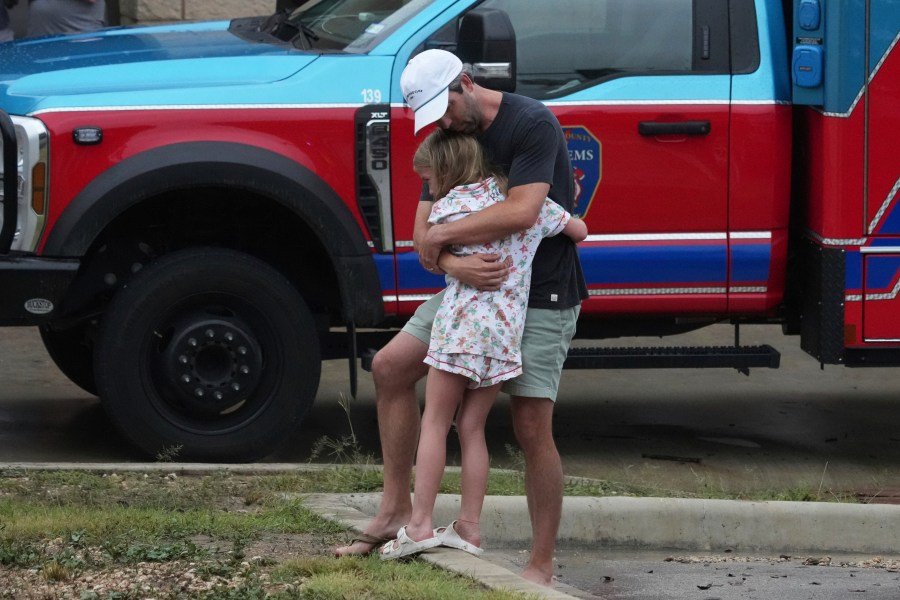AUSTIN (KXAN) – It can be difficult to process the impact and devastation of the recent Texas floods, no matter the age group. But with children, a certain sensitivity is necessary when talking about such tragedies.
Dr. Lori Peek, a sociology professor at the University of Colorado at Boulder and the Natural Hazards Center’s director, gave advice on how to handle such a heavy topic with children. Peek reflects on lessons learned from children who endured Hurricane Katrina in 2005.
Below is a transcript of Peek’s conversation with KXAN Meteorologist Kristen Currie.
Currie: The tragedy that has unfolded with the Independence Day Floods is hard on everybody, adults, but also children. So joining me today to talk more about how to address such a heavy topic is Dr. Lori Peek. Dr., talk to me about where we even begin when it comes to tackling such such a heart aching subject with kids.
Peek: Children make up nearly one quarter of our population here in the United States, but often times, young people are overlooked in disasters. I’m mostly talking about kids who are a little bit older and may see the TV, may have heard the radio when in the car with the family. They are hearing about these disasters, they know they’re happening, and not talking about them is not the best approach.
Peek: One of the things that sociologists and psychologists have learned over the years is that children do understand disasters. They see them unfolding in their world. In this age of social media and ubiquitous media, they’re exposed to disaster loss. So if we don’t talk about it, that’s not good for anyone. Listening and talking can be a really important entry point for beginning these important conversations.
Currie: And some of your advice comes from a past natural disaster, Hurricane Katrina, and what you’ve studied and what you’ve learned. Talk to me a little bit about
that.
Peek: After Hurricane Katrina, fellow sociologist Alice Fothergill and I launched a long term study where we followed children and their families for nearly a decade. After that storm, we were really interested in, again, understanding what were things that parents, grandparents, caregivers, as well as schools, religious institutions and other organizations that support children, what could they do to help them to recover after the disaster? We learned so much from both the children themselves as well as from the caring adults in their lives. And so we learned things about how important routine is for kids. It’s of the utmost importance to get kids back into a routine as soon as possible, but it’s also important to be flexible, because disasters and their aftermath oftentimes demand flexibility, because everything’s disrupted.
Peek: We learned over time that they were oftentimes hiding their feelings and emotions from the adults in their lives because they saw how stressed their parents were trying to recover. They saw that their teachers had lost their home, but were also back in the classroom. And so a lot of the things that we heard over and over from the children who we were following was that they were trying to protect the adults in their lives by not sharing about their own trauma, but then what that meant was that kids didn’t always have an outlet to share what they
were feeling.
Currie: We so appreciate you being here and sharing that advice. Dr Lori Peek, thank you so much.
Peek: Thank you so much. And wishing all of the people of Texas, and especially the Hill Country, well.
